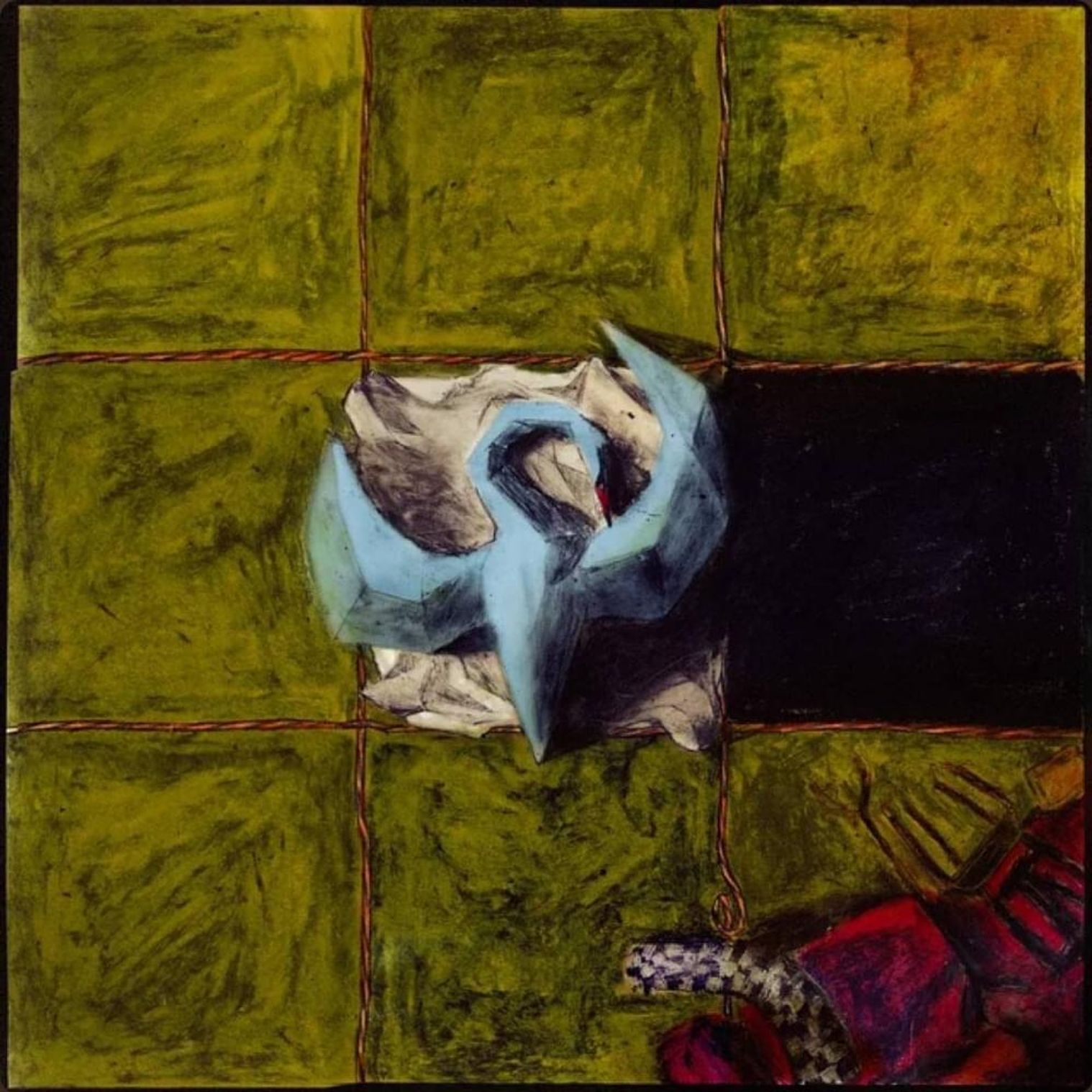At the end of last year, the Australian psych-rock band King Gizzard & The Lizard Wizard made a grand and absurd pronouncement: They would release five brand-new studio albums during the 2017 calendar year. They might still pull it off. As I'm writing this, King Gizzard now have a month and a half to come out with another album. Polygondwanaland, their fourth of the year, is out in the world now, released as a free download on the band's website. This stunt has its precedents. Once upon a time, bands used to crank out new albums at ridiculous rates. The Beatles released six albums between 1963 and 1965. Creedence Clearwater Revival released five in 1968 and 1969 alone. In 2009, Gucci Mane released two studio albums and eight mixtapes. So it can be done. But for a psych-rock band in 2017, King Gizzard's four-to-date albums still amount to a herculean feat -- partly because of the sheer volume of music, and partly because each album has its own sense of character.
For Flying Microtonal Banana, the album they released in February, King Gizzard tuned all their guitars to microtonal intervals, which had the effect of giving all their songs a staring-into-infinity krautrock enormity that meshed fascinatingly with the garage-rock intensity that comes naturally to the band. In June, they followed it with Murder Of The Universe, an album full of short bursts of drooling, freaked-out aggression, like what might have happened if the late-'60s Stooges had tried to play early Pink Floyd-style prog-rock. Sketches Of Brunswick East, from August, was the most laid-back of the records, its jazz-damaged mutant pop shot through with English folk and Ethiopian highlife influences. And if we don't get that fifth album this year, I can't imagine anyone will be disappointed, since the new Polygondwanaland is, at least from where I'm sitting, easily the strongest of the four and probably the best album I've heard from this band yet.
King Gizzard built Polygondwanaland out of intricate, overlapping grooves. The songs are all in unfamiliar time signatures; they're math problems that I can't quite comprehend. (Running errands earlier today, I just about broke my brain attempting to drum along on the steering wheel.) But King Gizzard aren't jam-band or tech-metal types; the technical dexterity is never the point. Instead, they use all that musicianship to craft an otherworldly rhythmic swirl. It's all there in "Crumbling Castle," the album's towering 11-minute opener. "Crumbling Castle" is a rocker, a staggering psychedelic beast of a song with its eyes locked on the sky. But it's not a single-minded creature. There's a lot of room for play in "Crumbling Castle." At various points in the song, we hear tranced-out flutes, blazing metal riffs, raga-drone organs, and ominous vintage-synth tones that recall Tangerine Dream and John Carpenter film scores. Sometimes, the members of the band attempt to chant like Gregorian monks, which has the slightly hilarious effect of making their accents sound even more Australian than usual.
And if "Crumbling Castle" is the roadmap, it's a huge one, one that leaves the band plenty of room to wander. There are some genuinely gorgeous acoustic folk songs on Polygodwanaland, but even on those tracks, both of the band's drummers get serious workouts. (Shout out to two-drummer bands. I'm sure there are shitty two-drummer bands out there, but I've never heard them. And the best two-drummer bands -- Black Eyes, Kylesa, Thee Oh Sees, Fugazi just before their breakup, the current Bon Iver touring lineup -- are just godlike.) Within their warped time signatures and psychedelic repetition, King Gizzard are great songwriters, and the melodies on Polygondwanaland can be soothing or triumphant or, sometimes, both. Lyrically, they're into dazed galactic imagery, which doesn't do a lot for me but which does suit the music. The whole sound is defiantly retro in a '60s or '70s sense, and there are plenty of obvious touchstones: Floyd, Sabbath, Can, Hawkwind, the 13th Floor Elevators. But like fellow Aussie space cases Tame Impala (a band that otherwise has nothing in common with King Gizzard), they're great at taking those influences and subsuming them into what they do. When I'm listening to Polygondwanaland, I'm not drawing mental connections to older psych bands or marveling at the fact that these guys already released three completely different albums this year. I'm just letting it wash over me.
When King Gizzard's grand 2017 stunt is over, when they succeed or fail at delivering that fifth album by their own arbitrary deadline, people are going to want to build narratives out of what the band has accomplished this year. And here's the narrative that I'm already developing in my head: It took the band three quick-succession albums to build up to what they've done on Polygondwanaland. All four albums are worth your time, but King Gizzard had to chase their muse down a few different rabbit holes before they ended up with something truly stunning, and that something truly stunning is Polygondwanaland. If they do manage to release another album in the next six weeks, it'll just be bonus points. What they've already accomplished is enough.
Polygondwanaland is out now as a free download on the band's website. Stream it below.
Other albums of note out this week:
• Björk's blissful, impressionistic Utopia.
• Noel Gallagher & The High Flying Birds' theoretically spaced-out Who Built The Moon?
• Kohti Tuhoa's frantic, badass hardcore shit-ripper Pelon Neljäs Valtakunta.
• The Staves and yMusic's full-length collaboration The Way Is Read.
• Dude York's Christmas-album novelty Halftime For The Holidays.
• SECT's hardcore skull-masher No Cure For Death.
• Genevieve's noisy, experimental death metaller Regressionism.
• Lucifer's Hammer's old-school riff-metal attack Victory Is Mine.
• Sufjan Stevens' supplemental-material comp The Greatest Gift – Outtakes, Remixes & Demos From Carrie & Lowell.
• Elbow's career-spanning collection The Best Of.






